Inclusive Education Challenges for Dyslexia Learners in Swaziland
VerifiedAdded on 2020/11/23
|6
|1034
|466
Report
AI Summary
This report, focusing on inclusive education in Swaziland, investigates the challenges faced by Swazi teachers when supporting learners with dyslexia. The study delves into the context of inclusive education, emphasizing the difficulties dyslexic learners encounter with reading, writing, and spelling. It highlights the significance of the research, emphasizing the need to identify and address challenges specific to the Swazi educational context, where limited studies on dyslexia have been conducted. The report examines the teachers' perspective, including challenges related to training, resources, attitudes, and curriculum issues. The principal argument posits that targeted support within inclusive classrooms, such as interactive writing activities, expressive language skills, and phonological skills, can greatly benefit students with dyslexia. The research emphasizes the need for intervention and support for teachers to help students with dyslexia thrive, and it explores how schools and teachers can implement accommodations to help students succeed. The report also suggests practical methods such as using tape recorders, highlighting directions, and supplementing materials with practical activities. It concludes by stressing the importance of providing reading guides to assist students in focusing on relevant content.
1 out of 6
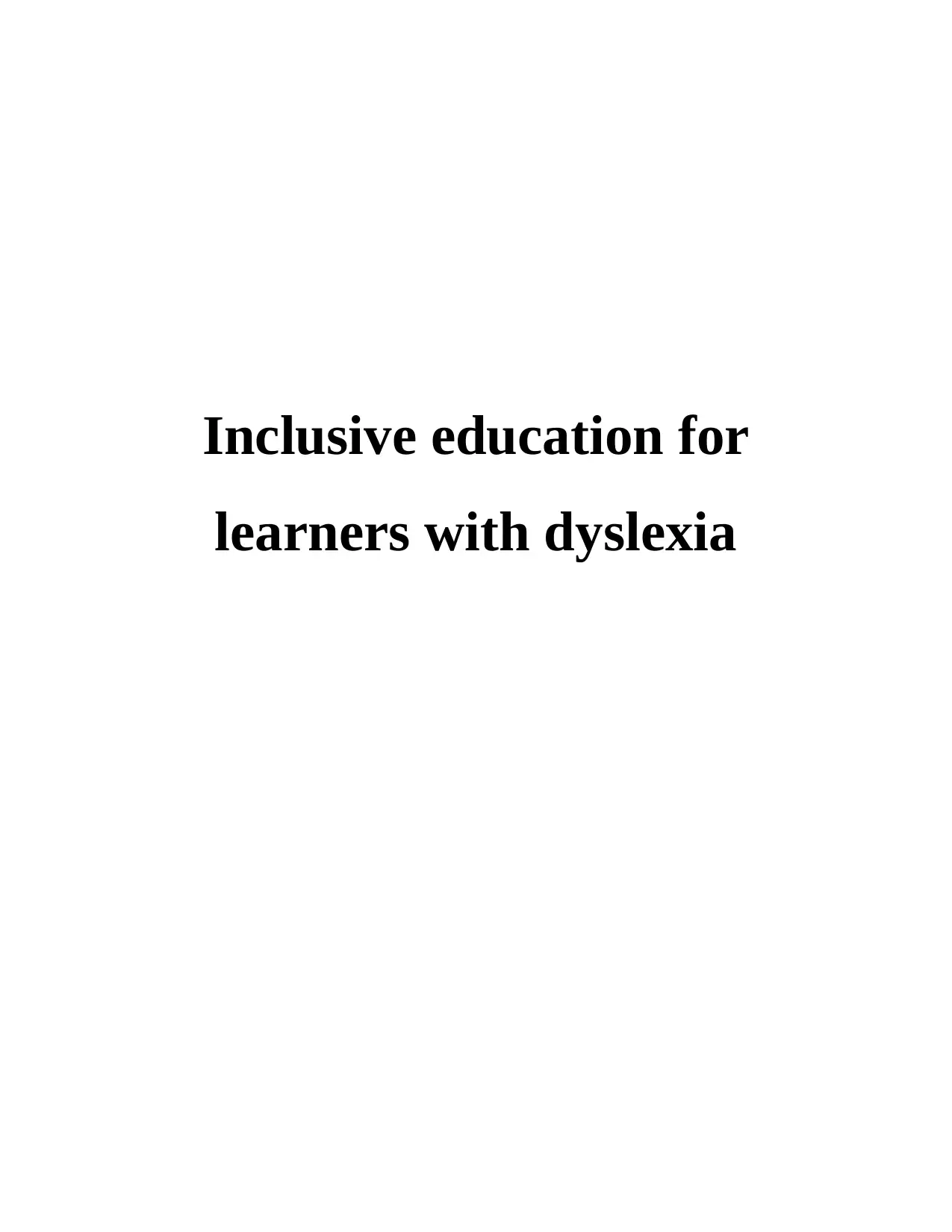
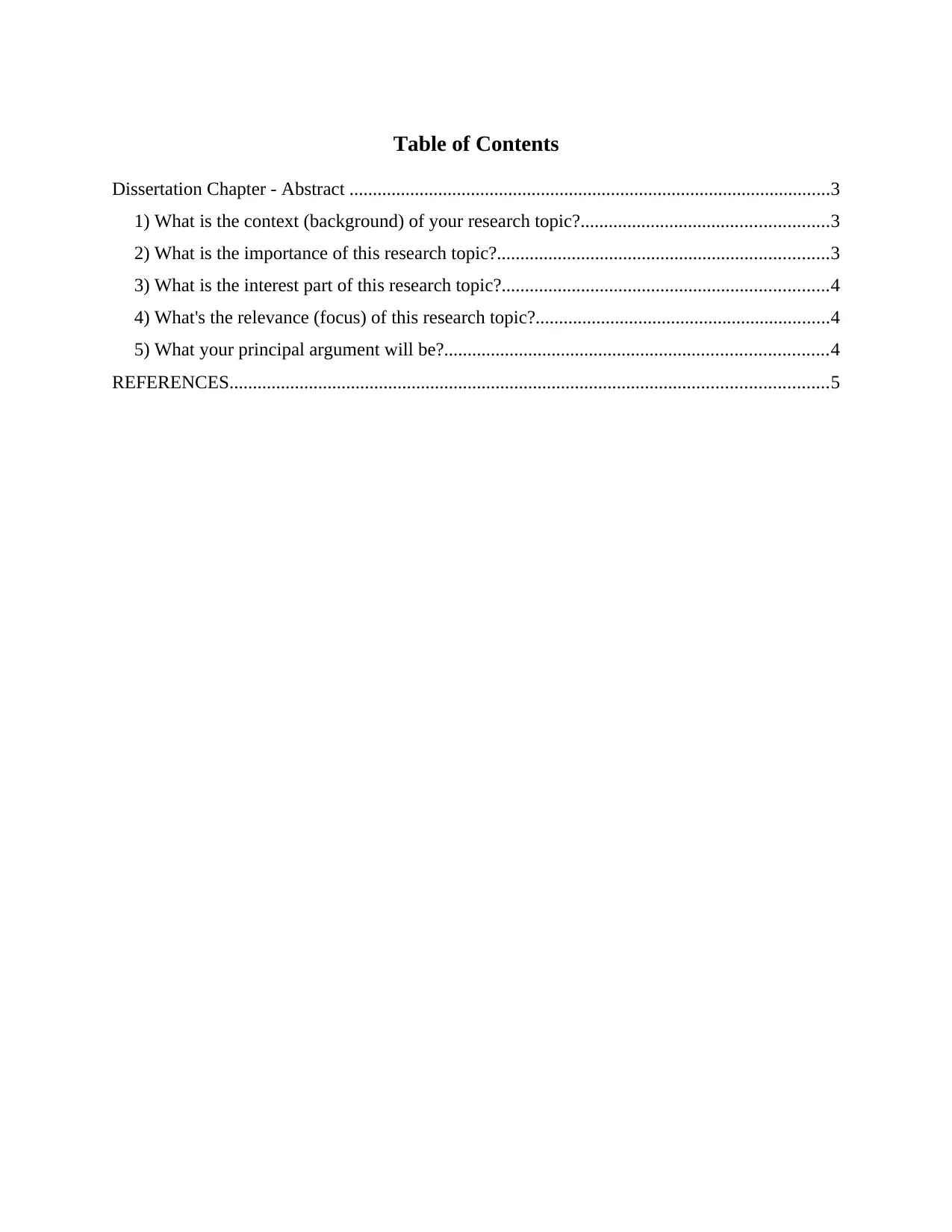
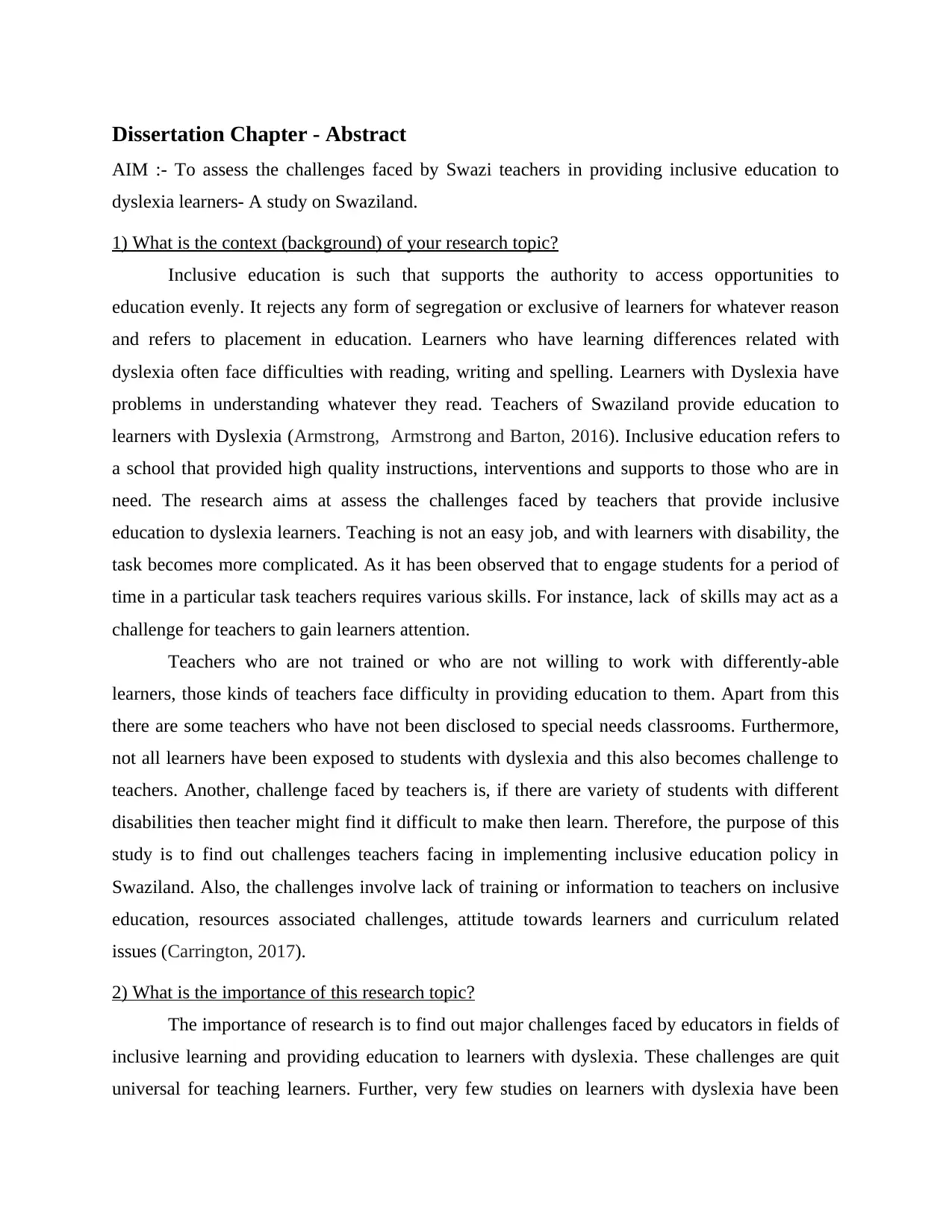

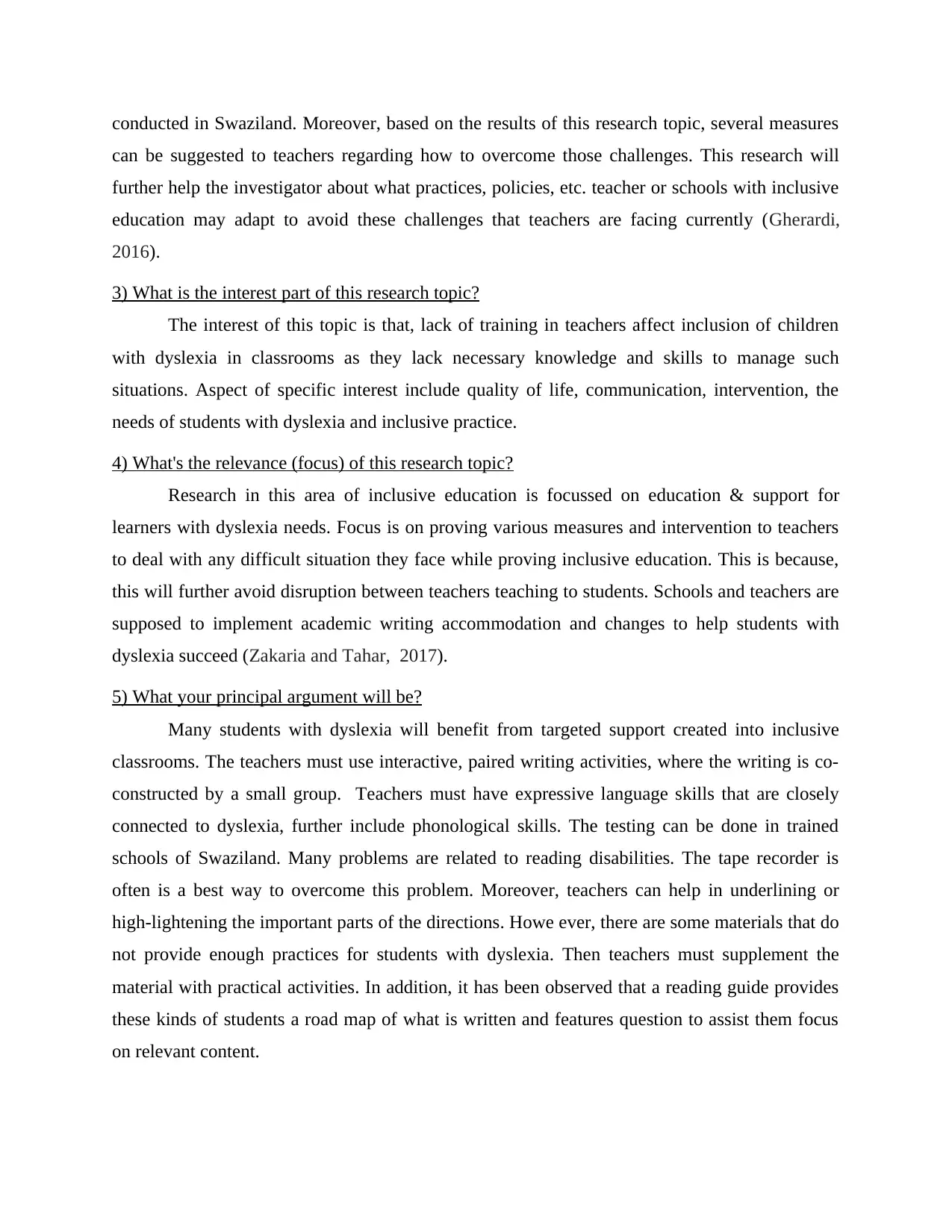
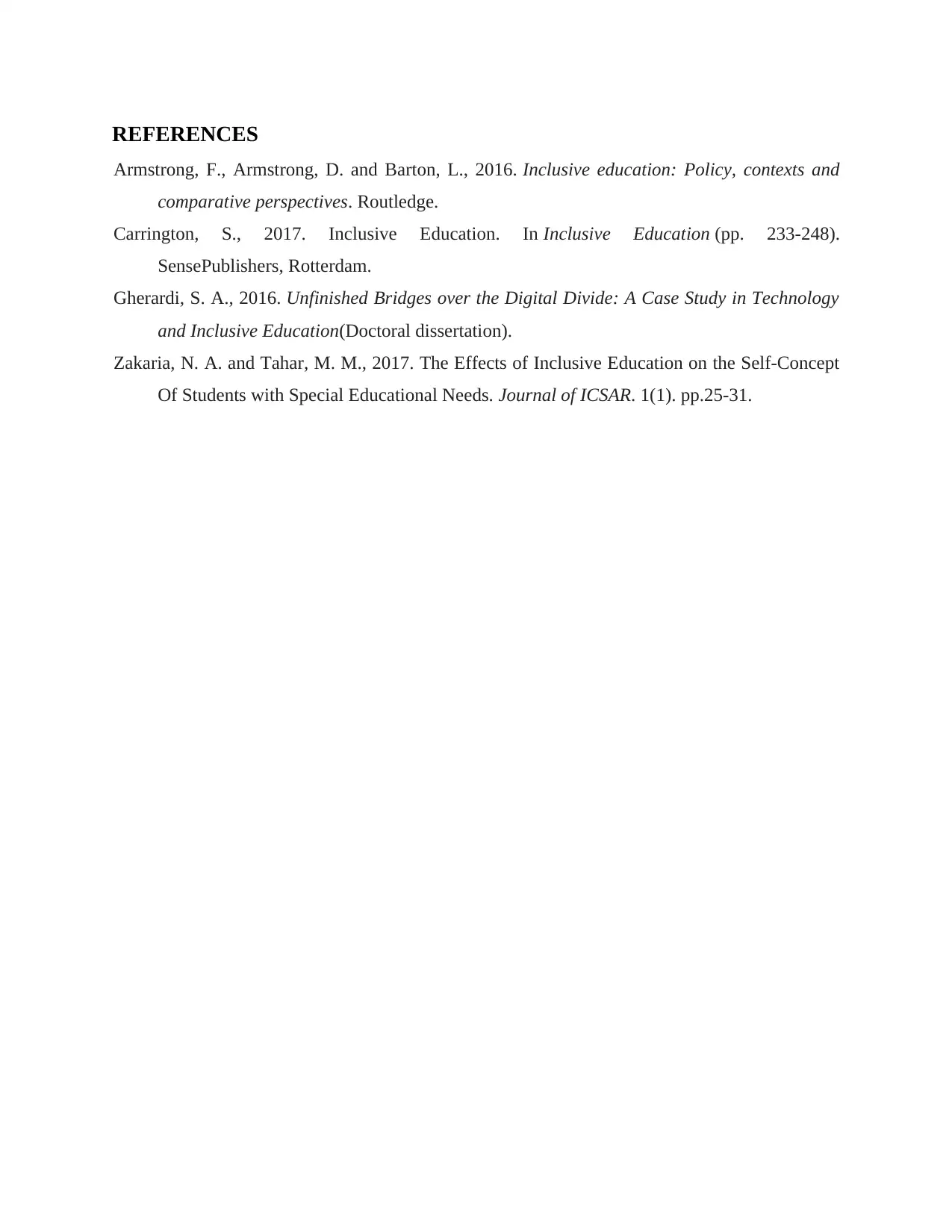







![[object Object]](/_next/static/media/star-bottom.7253800d.svg)